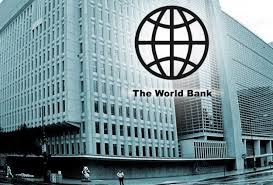THE World Bank at the weekend said low–medium income countries will need between $640 billion and $2.7 trillion investment yearly to meet development goals by 2030. It said prudent government spending could help a country avoid economic downturn.
The bank in a statement explained that rising debt levels is a concern as many emerging and developing economies have borrowed heavily while reductions of public debt before the global financial crisis have eroded.
It disclosed that emerging and developing economy debt increased by an average of 15 percentage points to 51 per cent of gross domestic product (GDP) last year.
The bank, however, argued that debt accumulation can be justified because of the need for growth-enhancing projects, such as investments in infrastructure, health and education.
It said: “The needs are massive: World Bank analysis finds that low- and middle-income countries will need in the range of $640 billion to $2.7 trillion in investment a year to meet development goals by 2030. In addition, prudent government spending can help a country ride out an economic downturn. But excessive debt carries serious risks. Even in an environment of low interest rates, debt can accumulate to unsustainable levels.”
It maintained that government spending large amounts to service debt is allocating less on other important activities.
It cautioned that high debt may force governments to raise taxes to rein in deficits, chilling business and consumer spending while in extreme cases, elevated debt can lead to defaults and bailouts.
On how much debt can be said to be too much, the bank said every government needed to strike the right balance. “Those with sound balance sheets may find that borrowing to boost growth is appropriate. Economies in shakier fiscal shape may need to be more cautious and find ways to enhance revenues first,” it stated.
It advised that those that borrow would benefit from better debt management and greater debt transparency. Debt should be contracted with a view to maintaining stability and preserving resilience.
“It is urgent that countries make significant structural reforms that improve the business climate and attract investment. They also need to make debt management and transparency a high priority so that new debt adds to growth and investment,” it advised.
The global bank urged countries to make significant structural reforms that will improve the business climate and attract investment. It also advised on the need to make debt management and transparency a high priority so that new debt adds to growth and investment.










